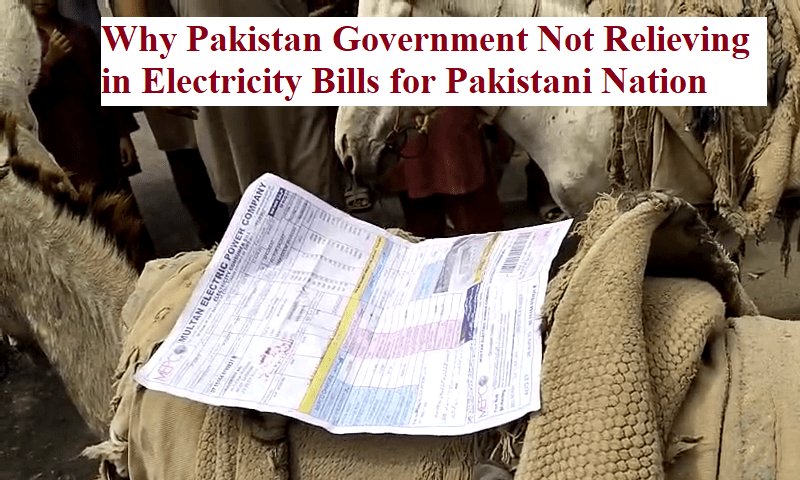
The Pakistani government has cited its lack of fiscal space and the need to pass on rising global commodity prices to consumers as the reasons for not being able to provide relief on electricity bills at this time, despite the public outcry over the high costs. The Pakistani government has stated it does not have the fiscal space or room for subsidies to provide relief on electricity bills for the public due to its dire economic situation:
- The government recently had to undertake painful economic reforms as part of an IMF bailout agreement, which included removing power sector subsidies and allowing electricity and fuel prices to rise. The power regulator has already increased the national average electricity tariff by around 5 rupees per unit.
- The Finance Minister stated that Pakistan is an import-dependent country, so rising global commodity prices have to be passed on to consumers as the government does not have the fiscal space for subsidies. With nearly 30% inflation, the government says it cannot afford to provide subsidies that would further burden the country’s finances.
- Multiple taxes and duties imposed by the government, including electricity duty, general sales tax, PTV license fee, fuel price adjustment, and others, account for 40-50% of the total electricity bill. This has led to a significant increase in the overall cost of electricity for Pakistani households.
- The high level of taxation on electricity bills is seen as a major contributor to the soaring electricity prices that have sparked widespread protests across Pakistan. Experts have criticized the government’s approach and called for measures to reduce wasteful expenditures and renegotiate terms with independent power producers.
Unexpected Taxes Added in Electricity Bill in Pakistan
The Pakistani government’s imposition of multiple taxes and duties on electricity bills, which can make up half the total cost, is a major factor driving the surge in electricity prices that has sparked public outrage and protests across the country.
There are several key points regarding the unexpected taxes added to electricity bills in Pakistan:
- The Pakistani government has imposed a total of 9 different taxes and duties on electricity bills, including electricity duty, general sales tax (GST), PTV license fee, financing cost surcharge, fuel price adjustment, extra tax, further tax, income tax, and sales tax.
- These taxes and duties can account for 40-50% of the total electricity bill for consumers. This has led to a significant increase in the overall cost of electricity for Pakistani households.
- The high level of taxation on electricity bills is seen as a major contributor to the soaring electricity prices that have sparked widespread protests across Pakistan.
- Experts have criticized the government’s approach and called for measures to reduce wasteful expenditures and renegotiate terms with independent power producers, rather than just passing on the costs to consumers through higher tariffs and taxes.
- The interim government has acknowledged the financial constraints it faces, stating that it does not have the fiscal space to provide subsidies or relief on electricity bills for the public. This has further exacerbated the public’s frustration.
Pakistani People Do not able to Pay the High Bills
There are several key points regarding why Pakistani people are unable to pay the high electricity bills:
- The electricity bills have soared to unprecedented levels, with the average cost per unit more than doubling in the last two years. Electricity rates have reached Rs 42-63 per unit, making them unaffordable for many households.
- A major factor driving the high bills is the imposition of multiple taxes and duties by the government, which can account for 40-50% of the total electricity bill. These include electricity duty, general sales tax, PTV license fee, fuel price adjustment, and other taxes.
- The surge in electricity bills has come at a time when Pakistan is facing record-high inflation, with food inflation reaching 38.5%. This has severely eroded the purchasing power and disposable incomes of the common people.
- Many low and middle-income households are struggling to make ends meet, with electricity bills exceeding their monthly incomes. This has led to widespread protests, with people burning their bills and businesses shutting down due to the unaffordable costs.
- The situation has become so dire that there have been reports of people, including a mother of four, committing suicide after being unable to pay their electricity bills.
- Small businesses and traders have also been hit hard, with many having to shut down their operations due to the crippling electricity bills that have made their businesses unviable.

